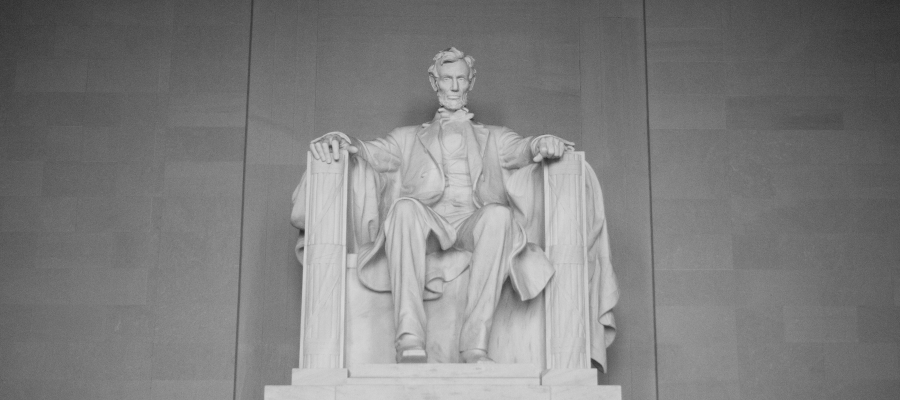The Ethics of Torture
09
Apr 2010
Is water-boarding torture? If it is, does that make it wrong? Always? Usually? What is torture, and why is it always, usually, or sometimes wrong? Almost every dictionary gives two definitions of torture: a narrow one… inflicting great pain. And a broad one… severe mental anxiety and suffering. Water-boarding clearly counts as torture by the second definition, perhaps the issue isn't clear given the first definition. But sure if our topic is the ethics, or morality, of torture, we need the more inclusive definition – severe mental anxiety and...
Read moreAfterlife
16
Mar 2007
David Hume died in August, 1776, at the age of 65 --- rather young, by my standards (I'm 64) but not unusually so for that age, I guess. The death is well-documented in literature. Realizing that he was dying, Hume wrote his short, charming Autobiography. His student and friend Adam Smith wrote a moving account of Hume's last days. And, most interesting for our purposes, his fellow Scot James Boswell, most famous for his biography of Dr. Johnson, at Johnson's urging, visited Hume to see if the old infidel's skepticism about an afterlife was shaken as death...
Read moreActing Together
15
Mar 2014
The great English philosopher Thomas Hobbes famously said that in the state of nature, life is solitary, brutish and short -- as if nature designed people to act alone, rather than together. But acting together, this week's topic, is one of the most natural things in the world. If we never acted together, there would be no families, no teams, no countries. But what exactly is it to act together? Suppose we’re outside and it starts to rain. We both run toward the door to the studio. We’re trying to do the same thing -- get into the studio and out of the rain. Though we...
Read moreLincoln as a Philosopher
01
Jul 2011
Lincoln is revered as our greatest President; he is virtually an American Saint. In Sunday’s program, we look at his philosophical ideas --- both political and religious. Some of these are disturbing. The Second Inaugural Address --- the one that’s carved on the wall of the Lincoln Memorial --- is really quite chilling. Especially if you think it really represents the philosophy of someone who has just pursued a path that led to the death of half a million people. It ends with a very moving statement: With malice toward none, with charity for all, with firmness in the...
Read moreA Question of Frege
08
Nov 2021
I really enjoyed talking to our old friend John Perry about the philosopher Gottlob Frege, whose 19th-Century about logic and mathematics are still influential today. Our listener Daniel sent in a great question for John, which we didn’t time to answer during the show. I wanted to say a little about Daniel’s question here—especially since today is Frege’s birthday! Daniel’s is curious about Frege’s attempt to establish math as an extension of logic. Frege believed that math is analytic, meaning that the definitions of mathematical terms like “2” and “4” guarantee the truth...
Read moreLessons from Lobsters
04
Sep 2018
Last month, a truck carrying over four thousand lobsters slid off the road and turned over in the small town of Brunswick, Maine. The driver emerged from the crash relatively unscathed, but his crustacean cargo, which fell onto the road, had to be destroyed. Before the month was out, PETA (People for the Ethical Treatment of Animals) sent a proposal to the state government for a monument memorializing the slaughter. Shaped like a five-foot high granite tombstone, it would display a picture of a lobster and be inscribed with the words “In Memory of the Lobsters Who Suffered and Died at This...
Read morePuzzle About Conspiracy Theorists (Part II)
06
Sep 2018
In my last blog, I examined a puzzle about conspiracy theorists. On the one hand, many conspiracy theoretic beliefs, like those of flat earthers, appear irrational. Psychological research, furthermore, shows that conspiracy theorists are typically low in analytic cognitive style, which means (roughly) they’re low in conscious deliberate rational thought. On the other hand, the researcher whose talk I had heard (Jan-Willem van Prooijen) pointed out that many conspiracy theorists do a lot of “thinking” and consider evidence contrary to their views. Accordingly, they adopt auxiliary...
Read moreWhat's In a Picture?
10
Sep 2019
Look around; I’ll bet you can see several pictures from where you sit, or stand, right now. You may see photographs of family, or drawings in advertisements. There are little pictorial icons for apps on your computer desktop and your phone’s home screen. Simplified pictures of pedestrians, cars, trucks, and deer festoon our street signs. Pictures are so ubiquitous that they often fade into the background of our conscious experience. We take them for granted. But there’s a special magic to pictures. When you see one, you don’t only see some colors on a surface, some marks jumbled...
Read moreGetting Rid of "Racism"
03
Oct 2017
Most people agree that racism is morally wrong, and therefore that we should all make an effort to get rid of racism. I completely agree. But this essay isn’t about getting rid of racism; it’s about getting rid of “racism.” The quotation marks make all the difference. When philosophers put quotation marks around a word, it’s usually to show that they’re talking about the word rather than the thing that the word names. So, when I say that this essay is about getting rid of “racism,” I mean that it’s about getting rid of the word “racism” rather than getting rid of the thing...
Read moreTechnology Ethics
04
Apr 2018
"Move fast and break things" is well known as Facebook's former motto, but it may well be the motto of all of Silicon Valley. Put another way, the Valley builds first, and deals with the consequences later. But this approach is creating bigger and bigger problems, from Facebook's fake news to lewd children's videos on Youtube. Do universities, often the teachers of engineers, have a responsibility to address the apparent lack of ethics in our growing tech industry? A number of universities with leading computer science programs certainly believe so, incorporating new classes focusing on...
Read moreMagical Thinking
17
Sep 2016
How do you simultaneously cut taxes, increase spending, and balance the budget? All it takes is a little magical thinking – our topic for this week. Magical thinking happens when you have, say, firmly held beliefs based on scanty or even non-existent evidence or when you make plans in which ends and means are radically out of synch. Think of the belief that doing a certain dance can cause it to rain or that wearing a baseball cap inside out can lead to a rally. But, of course, magical thinking doesn’t show up just in outmoded superstitions or...
Read moreSocial media, knowledge of others, and self-knoweldge
10
Oct 2015
A recent Radiolab podcast relates an amazing story about Allen Funt, the creator of the television show, Candid Camera. Funt found himself on a plane that was being hijacked. However, as Funt was by then well-known as the creator of the show, one of the passengers on the hijacked plane spotted Funt, started to grin and, pointing at Funt, yelled out, “we’re on Candid Camera!” The rest of the people on the plane began to recognize Funt as well and, despite Funt’s protestations to the contrary, became convinced that the hijacking was all an elaborate hoax—a show. But it wasn’t a show, and by...
Read moreIs Consciousness an Illusion?
20
Mar 2017
Prominent philosophers go head to head in this New York Review of Books piece. Thomas Nagel writes a critical review of Daniel Dennett's new book From Bacteria to Bach and Back: The Evolution of Minds. Front and center in Dennett's picture is the difference between the "manifest image"—a colorful world filled with ideas, experiences, colors, sounds, emotions, and ordinary objects—and the "scientific image"—a more barebones picture of atoms, subatomic particles, and forces. In essence, Dennett wants to reject the manifest image altogther; he claims that consciousness is...
Read more[AUDIO] Time Biases
23
Jun 2017
Recently, philosophers, economists and psychologists have been invested in the question of time biases. This psychological phenomenon manifests around our preference of when good or bad experiences happen. Walter Mischel, author of The Marshmallow Test: Mastering Self-Control, explores whether a child offered one marshmallow now or two marshmallows later would choose the former and the consequences for her behavior later in life. Richard H. Thaler and Cass R. Sunstein, authors of Nudge, examine the various biases that cause us to choose poorly from personal investments to...
Read moreThe First Ever Online Philosophy Conference
17
Jan 2006
We would like to take this opportunity to announce the 1st Annual On-line Philosophy Conference (OPC), which is tentatively to begin on Friday, April 7th (2006). The first installment of OPC will be hosted on the newly created On-line Philosophy Conference Blog and will include invited papers by some of today's top junior and senior philosophers, such as Stephen Stich, Jonathan Kvanvig, John Martin Fischer, Alfred Mele, Julia Driver, Terence Horgan, Graham Priest, R.A. Duff, Thomas Hurka, Susanna Siegel, Brian Weatherson, Uriah Kriegel, Manuel Vargas, Kit Wellman, Joshua Gert, Joshua Knobe,...
Read moreThe Examined Year 2016: Triumph and Defeat
15
Dec 2016
As we approach the end of 2016, we are gearing up for our annual year in review show, "The Examined Year." In this special show, which broadcasts live from our home station, KALW, we depart from our usual long-form conversation format with a single guest and instead have three different guests on three different segments. The theme we've chosen for our philosophical review of 2016 is "Triumph and Defeat." Politically speaking, it's obvious how that theme applies. The two biggest political upsets of the year that we'll be examining are Brexit and Trump. Joining us for...
Read moreReading, Narrative, and the Self
26
Nov 2010
This week’s topic is Reading, Narrative, and the Self. I suppose everybody has a pretty good idea of what each of those things, taken individually, means. Reading is something that most people do. A good narrative -- or story, to use a less fancy term -- is something most people enjoy. And a self is something everybody has. But I think I need to explain what reading, narrative, and the self have to do with each other. I’ll take them in reverse order, starting with the self. Everybody has a self...
Read moreWelcome Valley Public Radio Listeners
09
Dec 2008
We at Philosophy Talk are really pleased to begin airing on Valley Public Radio, covering Fresno, Bakersfield, and California's Central Valley, beginning Thursday December 11th at 7pm. We're really excited about the opportunity to engage with you all about life, love, culture, science, religion and the whole range of topics we cover on our show. Before we before we actually began to air on Valley Public Radio, we had an opportunity to appear live in front of audience from the Central Valley. Just over a year ago we took the show on the road to...
Read morePhilosophy as Therapy
23
Oct 2014
A lot of philosophers I know need therapy. I can’t think of too many I know I would want to be my therapist, however. What do philosophers know about therapy? But leave philosophers aside for a minute. How about philosophy itself? We must grant that people have a lot of irrational beliefs, and that these beliefs can lead to unhappiness of all sorts: anxiety, fear, depression, and the sorts of things for which therapy is needed? So if philosophy can undermine those irrational beliefs, and thereby remove the anxiety, fear,...
Read morePantheism
23
Feb 2012
Pantheism is the view that the world is either identical to God, or an expression of God’s nature. It comes from ‘pan’ meaning all, and ‘theism,’ which means belief in God. So according to pantheism, “God is everything and everything is God.” This may sound like a familiar Judeo-Christian concept, namely God’s immanence, which is the idea that God pervades or is ever-present throughout the universe. However, pantheism differs from traditional theistic religions in two important ways. First, pantheism rejects the idea that God is transcendent....
Read moreRadical Ideas about Markets
13
Jul 2018
Is the market the key to freedom and prosperity? Don’t markets necessarily lead to economic inequality? Is it possible to make markets work better for everyone? This week we’re exploring Radical Markets for a New Gilded Age. And we do live in a gilded age, with rampant inequality, the rich getting richer, wages stagnating for the rest. So our question for today is whether markets—so called radical markets—can cure the ills of this new gilded age. But how could markets possibly be the cure if markets are what got us in this mess? Markets may have given us everything from iPhones and autos...
Read moreWhat's On Your Mind?
28
Mar 2024
We’re constantly sharing what’s on our minds; heck, I'm doing it right now, by writing this blog. What's fascinating, though, is that we also seem to do it without trying, or so much as noticing. Even when we aren't writing a blog, or holding a conversation, other people can pick up on our beliefs, desires, and intentions. We look at someone's gestures, movements, facial expressions—and just from that, from a twitch of an eyelid, we know exactly what they’re thinking. How do we do that? You might say the answer is: we don't! We get it wrong about other people all the time. For...
Read moreControversy About Climate Denial
19
Mar 2019
In my last blog, I described five types of climate change denier. Not all of them are equally serious, and “denier” needs to be construed broadly. But all of them feed into the phenomenon of denying human-caused climate change. Here’s a recap: The Deceiver knows that he or she is distorting the science and does so willfully. The Deceived is victim of the deception and hence just has false beliefs about climate change and the science around it. The Self-Deceived actively seeks out evidence (or “evidence”) that supports the denialist position, often because denial is part of...
Read moreViral Xenophobia
16
Mar 2020
As I write these words, the world is in the path of a mounting pandemic. People are frightened. They should be. The novel coronavirus is dangerous. It can and does kill. But its biologically menacing character is just one part of the threat that it poses. The virus also presents us with a social threat. Viruses and other microscopic sources of disease are unobservable to the naked eye. And even though we nowadays understand the causes and nature of infection, this theoretical knowledge doesn’t always affect our behavior as it should. There’s something uncanny about an invisible, lethal...
Read moreHow to Keep Your 2018 Resolutions
08
Jan 2018
Hint: It's not about willpower. In this article from The NY Times, psychologist David DeSteno explains that social emotions are critical tools for self-control. Tied with moral decency and self-esteem, emotions like gratitude, compassion, and pride incline us to be patient and persevere through difficult tasks. For example, we are more likely to persevere when we feel grateful for the skills that we have and want to exercise them or work hard when we aim to be proud of the results of our efforts. Nurturing these emotions will help us to accomplish our New Year's resolutions more...
Read more



















